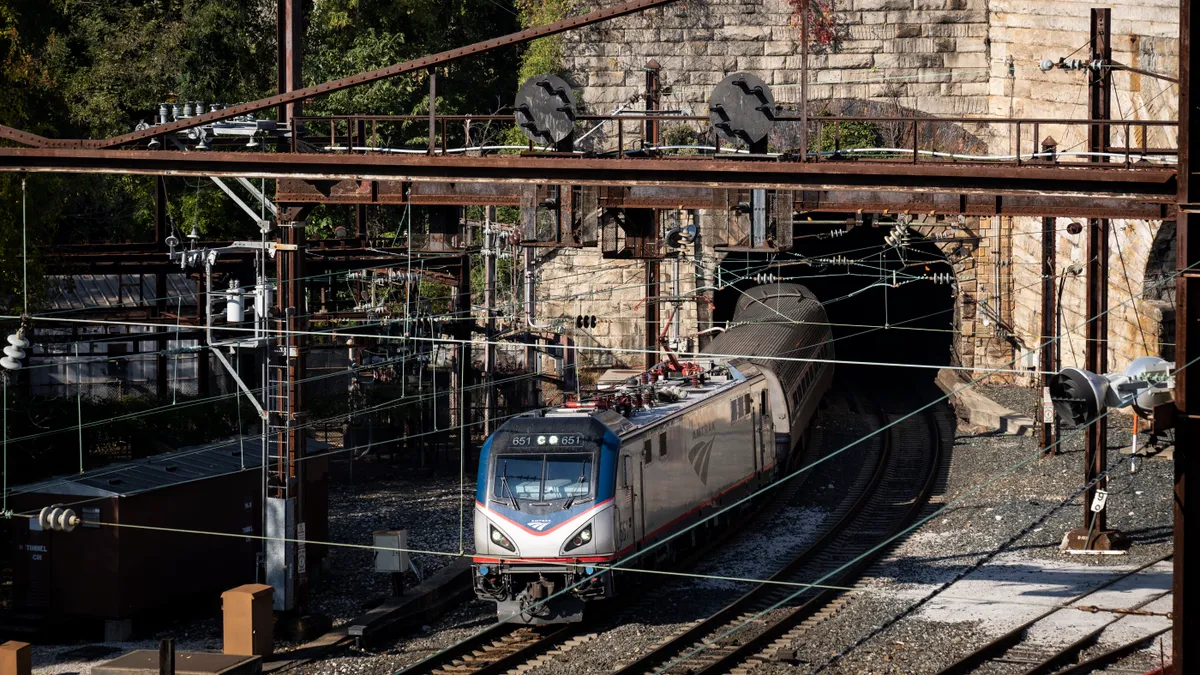AECOM is taking on more climate adaptation and cleanup work, and it’s betting these markets will continue to grow in the coming decades. The Dallas-based firm is positioning itself to capitalize on global investment shifts in infrastructure funding, said AECOM CEO Troy Rudd in a second-quarter earnings call on May 7.
“Key issues including the impact of climate change, water scarcity and emerging contaminants are creating unprecedented demand and funding,” Rudd said.
At the same time, AECOM is bolstering its project management work and eventually wants half of its revenue to come from this segment — currently 15% of its net service revenue, per Rudd. That’s because in the age of megaprojects and a construction labor crunch, Rudd sees growing demand for its integrated advisory and technical services.
“Project size and complexity continue to increase, including a ten-fold increase over the past 10 years in the number of multibillion-dollar projects in the U.S. alone,” Rudd said. “At the same time, our clients are increasingly facing internal capacity and capability constraints.”
Second-quarter numbers
Despite that momentum in the sector, AECOM’s profits for the quarter plunged to $1 million, down 98.7% from $76 million in the second quarter of 2023. Revenue of $3.9 billion in Q2 2024 was up 13% from the same period last year and flat from last quarter.
AECOM ”made heavy investments in business development to support that growth at the expense of today's margins,” said an analyst note from Baird Equity Research written by Senior Research Analysts Andrew Wittmann and Justin Hauke.
Meanwhile, its backlog stood at $23.7 billion in the second quarter, up 3% year over year from $23 billion in 2023 and a new high watermark for the firm, AECOM said.
The firm has stayed focused on its transportation, water environments and facilities businesses, especially where it can leverage its consulting expertise, Rudd said.
Longer term, he thinks environment-related investment is just getting started.
“Certainly the investments in traditional infrastructure, you see the appetite for it, and you see the funding that's available,” Rudd said during the call. “But also, there's investments in infrastructure that are just improving the sustainability and the resilience of that infrastructure, and we see that happening for a long period of time. And then beyond that, there is a large energy transition that is taking place.”
Net service revenue increased 8%, spurred by growth in its water, environment and transportation end markets in the past quarter, the firm said. Federal Infrastructure Investment and Jobs Act funding as well as robust state-level investment buoyed the firm’s backlog, Rudd said.
During the call, the company noted several project wins in the past quarter, including:
- A FEMA contract to support infrastructure recovery following disasters in the Atlantic zone.
- As a delivery partner on the $6 billion Frederick Douglass Tunnel Program in Baltimore.
- PFAS investigation and remediation for U.S. Army National Guard facilities nationwide.
- Program management services for San Diego International Airport’s capital improvement program, including the $3.4 billion replacement and expansion of the new Terminal 1.
- An unnamed U.S. data center project.
An AECOM joint venture with London-based Arup was also selected to deliver a design and construction program for the U.K. National Grid’s Great Grid Upgrade, a clean energy transition initiative in England and Wales that marks its biggest overhaul in generations.
New EPA rule
Amid its broader emphasis on water work, AECOM has been focusing on PFAS remediation, which can entail building new cleanup facilities and employing its PFAS destruction technology. Per-and polyfluoroalkyl substances, or PFAS, are a group of widely-used chemicals — known as “forever chemicals” — that can pose serious human health and environmental risks.
In April the EPA designated two types of PFAS as hazardous substances: perfluorooctanoic acid and perfluorooctanesulfonic acid. In order to meet this new standard, AECOM anticipates helping clients across the water, wastewater and industrial sectors including municipal governments, utilities, airports, manufacturers and defense agencies.
The firm is “very optimistic about the opportunities with PFAS” and already saw 50% backlog growth for PFAS-related work in Q2, according to AECOM President Lara Poloni.
“Importantly, we already hold every major environmental contract vehicle, including the key vehicles for PFAS-related work for all the Department of Defense, NASA and many other civilian agencies of the U.S. government,” said Poloni during the call. “Today, it's about 1% of our revenue, but we're optimistic that there's going to be substantial growth.”














